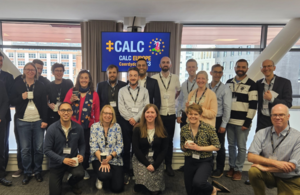Learning from drafters at home and far away
At OPC, we often collaborate with other legal drafters from all over the globe. Here we discuss working with colleagues from the U.K and commonwealth countries.

A Day in the Life of a Parliamentary Counsel
Our ‘day in the life’ video highlights a core aspect of working and professional development at the Office of the Parliamentary Counsel (“OPC”) – the testing of ideas with colleagues to find the best way to deliver the right result. This reflects some of the key characteristics of a successful drafter. You must recognise the limits of your knowledge and be open to new approaches at all stages of your career to be as effective as possible.
It is for that reason OPC often collaborates with drafting offices throughout the UK and across the common law world. This collaboration can vary from ensuring that the detail of a particular piece of drafting is correct – for example, identifying a concept in Scots law that is equivalent to a concept in the law of England and Wales – to considering structural issues such as the accessibility of legislation.
Jessica De Mounteney, Director General at OPC, recently attended a conference hosted by the Commonwealth Association of Legislative Counsel that brought together drafters from many countries. At the conference, Samoan drafters described preparing legislation in English, translating it to Samoan for its passage through Parliament and publishing the approved/amended legislation in both English and Samoan. The conference also heard from a drafter in the New Zealand office who is drafting in Maori, a language which encompasses concepts not easily translatable into English. Ensuring that texts in different languages have the same legal effect could present a huge challenge, but these drafting offices take it in their stride and have much to teach others about choosing concepts and words that carry over into other languages.
Closer to home, a regional conference of drafters from places including Belfast, Cardiff, the Channel Islands, Dublin, Edinburgh and London was held by the Commonwealth Association of Legislative Counsel (CALC) at the Principality Stadium in Cardiff earlier this year. Delegates took part in short drafting exercises to identify simple and effective approaches to common issues, discussed potential pitfalls when handling private members’ bills and pondered whether artificial intelligence might eventually make their profession redundant.
OPC also recognises the value in long-term collaboration and sharing of experiences. Drafters have been seconded to or from places including Australia and Jersey in the past year and training sessions on drafting techniques are frequently attended by drafters from abroad. We were also visited by two Singapore drafters in September for a lively conversation over tea. We learned that, while they usually have very few amendments if any to deal with after introduction and pass Bills very quickly in comparison to us, they have to take into account the Presidential Council for Minority Rights, whose main function is to scrutinize Parliamentary bills to ensure that they do not discriminate against any racial or religious community and has the power to report any biased provisions back to Parliament.
Drafters across the common law world may work in very different legal and political contexts, but the profession is united by its commitment to exploring new approaches to drafting that may improve its clarity and effectiveness.